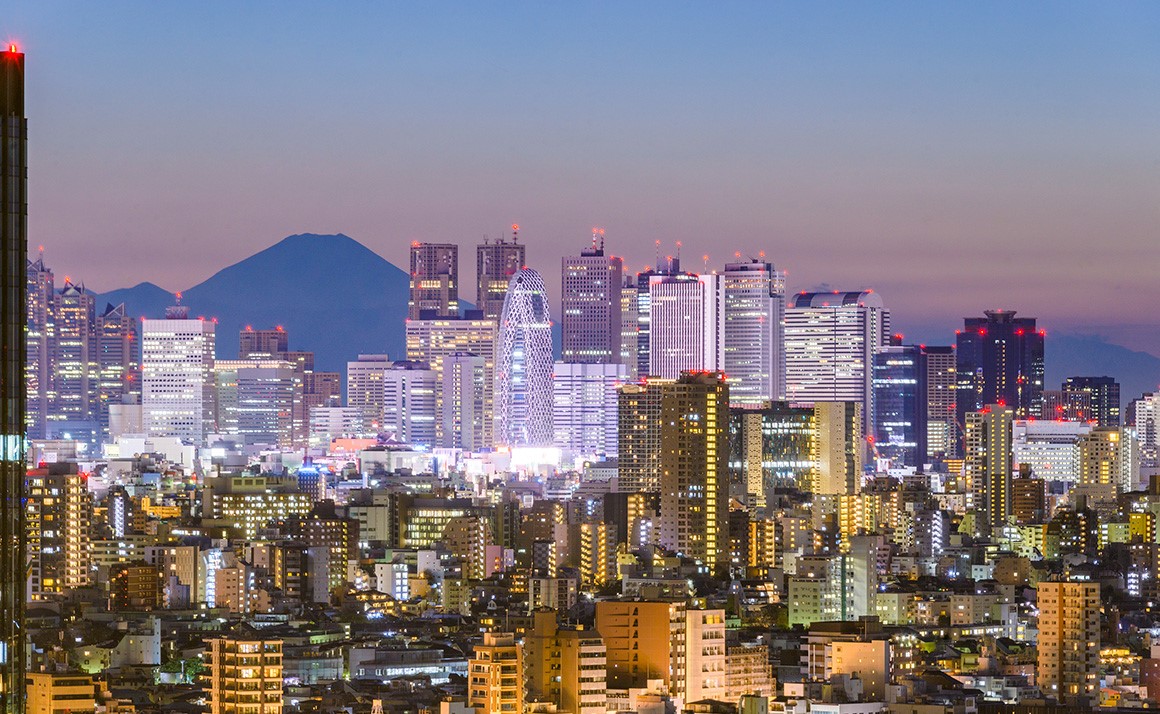
No let up in foreign investors’ appetite for Japan
Overseas investors are expanding their operations in Japanese real estate, drawn by stable performance and low financing costs.
Overseas investors remain keen on Japanese real estate and are committing to expanding their operations.
Japan has long been a popular choice for investors from all over the world but is still adding followers attracted to its stable performance and cheap debt financing costs.
Andy Hurfurt, Director, Institutional Investment & Advisory, at Savills Japan, says: “We continue to see broad spectrum of overseas investors here, representing around 25-30% of reported transaction volumes every year. The yen is cheap by historic standards and that is also attracting investors.”
Alongside established foreign players, including Axa IM, Blackstone Group, ESR, Gaw Capital, GIC, PGIM Real Estate, Nuveen and Savills Investment Management, a number of global real estate investors have opened offices or appointed new senior staff recently.
US logistics specialist Cabot opened its first Asia Pacific office in Tokyo in December and private equity real estate group Ares Management is reported to be opening an office there too. Meanwhile, Singapore’s CDL has appointed a new head of Japan, while one of Warburg Pincus’s new Asia Pacific co-heads, Takashi Murata, will be based in Tokyo, also acting as head of Japan.
Japan is also seeing an upswing in interest from Asian family offices and high net worth individuals, says Hurfurt. These investors tend to be from Singapore or Hong Kong and are familiar with Japan. Most are targeting the multifamily sector or perhaps hospitality and are looking to invest $50 – 300m in Japanese real estate.
Overseas investors are primarily focused on “beds and sheds” the multifamily and logistics sectors, primarily in Tokyo and Osaka, says Hurfurt. Multifamily offers resilience and solid cash on cash returns for investors and is also the most liquid sector. “There is a constant flow or multifamily opportunities, either individual assets or portfolios available in the market,” he adds.
The logistics sector is seeing oversupply in some areas, with Savills research data showing overall Greater Tokyo vacancy up 2.7 percentage points year-on-year to 7.1% at the end of last year. Savills predicts, however, that prime facilities in good locations will continue to thrive.
Some investors are targeting the B Grade office sector in Osaka, which is expected to see strong business demand over the next few years, thanks to Expo 2025 and the ongoing development of an integrated casino resort. The office sector in Japan has been resilient and the small to medium-sized companies which typically occupy B Grade offices tend not to have the infrastructure to support homeworking, making them sticky tenants. Vacancy rates have fallen to low single digits.
However, the office sector is out of favour with investment committees in Europe and the US, says Hurfurt. “Overseas investors well established in Japan can invest in the sector, but if you need to persuade someone sitting in New York or London, it can be a difficult pitch.”
Finally, the hospitality sector continues to attract interest, as tourism booms in Japan. For example, Axa IM recently bought a 183-room hotel in Kyoto for ¥6.8 billion ($41 million). Investors are also looking further afield, to less well-known cities, where they may find keener pricing and more upside potential, says Hurfurt.
Further reading:
Japan Insight & Opinion



